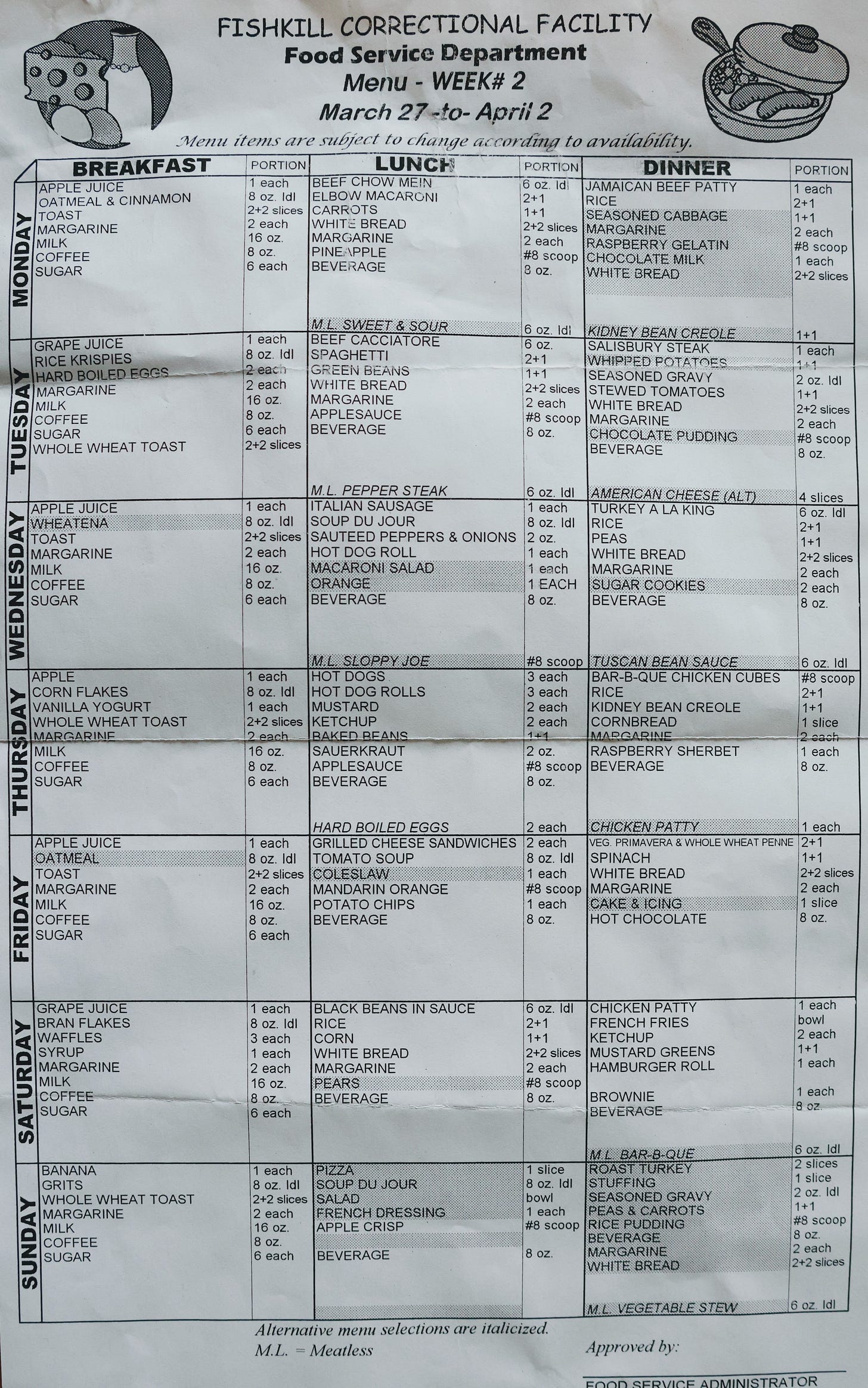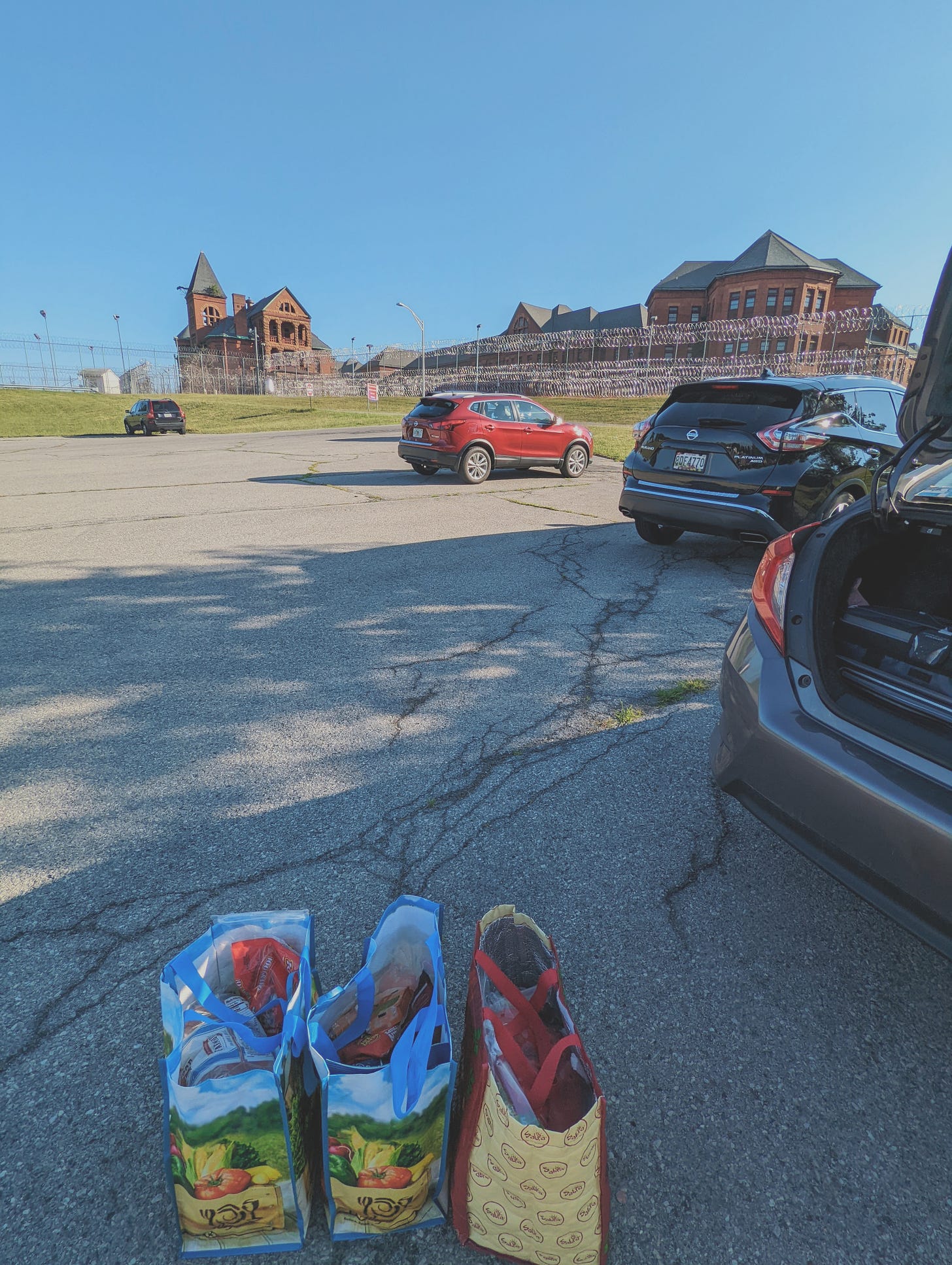Have you ever been tear gassed while eating breakfast?
The range of violence incarcerated individuals experience in New York State prison mess halls is out of hand.
*Content Warning: Violence, Racism*
When Jonathan left Rikers Island and entered a state prison in June 2005, he quickly learned that going to the mess hall meant that he risked exposing himself to violence.
It could be a fight between two incarcerated individuals, or between an incarcerated individual and a correctional officer. Small things, like brushing against someone as you walk past them, could lead to a fight. Or it could be sparked by an officer talking down to someone who just couldn’t take the constant degradation anymore.
Most people are hypervigilant in trying to avoid these interactions. But on August 4, 2015, Jonathan and everyone else in the mess hall with him had to deal with the consequences of being in the same room where a fight took place.
As officers intervened in the fight between two incarcerated individuals, one of them began beating one of the men with a wooden baton. This quickly drew the attention of the nearly one hundred other incarcerated people in the mess hall.
People shouted protests like "POLICE BRUTALITY!" and "STOP BEATING HIM!" as the baton repeatedly swung up and down on the man on the ground, who was also being kicked.
The energy in the mess hall was charged with emotion.
Suddenly, there was a loud thumping sound and the metal doors to the mess hall began to close. Tear gas began pouring out from the ceiling.
Officers tried to order everyone out of the mess hall in a single file line. But someone quickly shouted, “You can’t do this, people are sitting here in tear gas!”
Another thumping sound came, and more tear gas flowed down onto the crowd.
"Let’s go!” called Jonathan’s friend, Julio.
They ran for the single open door, quickly becoming part of a stampede.
All the men were herded into a dirt yard, tears running down their faces, coughing, and struggling to breathe.
Officers pointed guns down at them from the roofs of the surrounding buildings and ordered them to stand in a line against one of the buildings, strip down to their boxers and shoes, and kneel with their hands behind their heads.
In small groups, they were taken to a shower room to throw water on their faces, before being escorted back to their cells.
All of their clothes and personal property that had been dropped in the yard (phone books, family photographs, jewelry, etc.) were thrown away, never to be seen again.
Quickly after this event, the facility went into lockdown1 and officers conducted an institutional search2, turning housing units upside down and destroying more of people's personal property, such as hot pots and radios.
Reflecting on his experience, Jonathan explains, “I don’t like going to the mess hall. I don’t like being harassed. I will go and eat and leave immediately. If I know they’re searching people3, I will avoid it and make do with what I have.”4
Human beings deserve the right to food, but the food served in prison mess halls is mostly inedible. And on top of that, the experience of eating in a mess hall ranges from dehumanizing to outright traumatizing.5
It’s a form of state-sanctioned violence, and it's truly not okay.6
Do you want to buy groceries for someone incarcerated in New York State?
I’m playing with the idea of offering a subscription to this newsletter that funds community care for currently or formerly incarcerated people…but I’m not ready to start that just yet.
In the meantime, you can send support on Venmo (@ brittanypeterson) and include the note “groceries” and I will put it directly into an incarcerated person’s commissary fund on your behalf. (I’ll send you a receipt too!)
In a maximum security prison, this means you are locked in your cell until the “lockdown” is over. You have to take “bird baths” in your sink. You don’t have access to the phones. Food is delivered to your cell.
Officers search the facility for anything that poses a threat to security, such as weapons or drugs. In doing so, they often destroy people’s personal property and throw everything in a person’s cell on the floor. We’ve heard stories where people’s typewriters were thrown from a higher tier of cells over a railing to the floor below, and people’s family photographs were tossed into toilets.
This can take on two forms: (1) A pat down where you stand against the wall and spread your arms and legs to be searched (2) A portable metal detector that gets waved over your body.
Some people, particularly those with consistent financial support from family and friends outside of prison, can avoid the mess hall for long stretches of time by surviving on food from the commissary (the prison “store” that sells some basic groceries) and food packages from (very expensive!) prison food vendors like Walkenhorst’s and Emma’s Premium Services.
Read more about this issue here: Impact Justice







